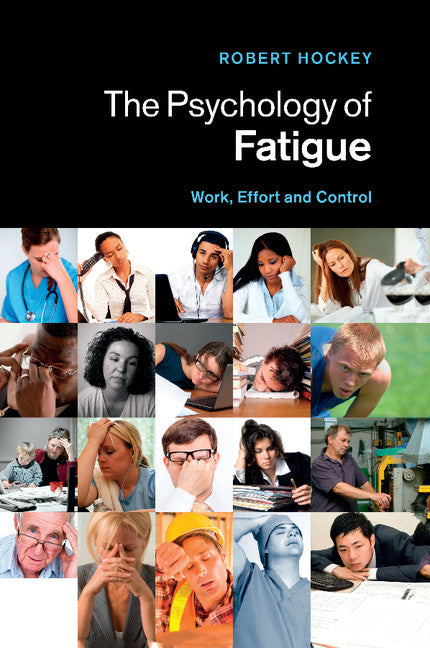Freshly Printed - allow 8 days lead
Couldn't load pickup availability
The Psychology of Fatigue
Work, Effort and Control
The first systematic treatment of fatigue for sixty years, putting forward a new theory of its origins and functions.
Robert Hockey (Author)
9781107477803, Cambridge University Press
Paperback / softback, published 18 December 2014
290 pages, 10 b/w illus. 3 tables
22.9 x 15.2 x 1.5 cm, 0.43 kg
'This book is a perfect example of how psychological analysis can add value, depth, and an originality of perspective to a topic significant to us all. Eclectic, scholarly, but most of all accessible, Hockey's book guides us through the wide-ranging literature related to fatigue with an impressive grasp. He amply demonstrates the very best qualities of twentieth-century British psychology from which he comes.' Mark Lansdale, University of Leicester
Fatigue can have a major impact on an individual's performance and well-being, yet is poorly understood, even within the scientific community. There is no developed theory of its origins or functions, and different types of fatigue (mental, physical, sleepiness) are routinely confused. The widespread interpretation of fatigue as a negative consequence of work may be true only for externally imposed goals; meaningful or self-initiated work is rarely tiring and often invigorating. In the first book dedicated to the systematic treatment of fatigue for over sixty years, Robert Hockey examines its many aspects - social history, neuroscience, energetics, exercise physiology, sleep and clinical implications - and develops a new motivational control theory, in which fatigue is treated as an emotion having a fundamental adaptive role in the management of goals. He then uses this new perspective to explore the role of fatigue in relation to individual motivation, working life and well-being.
1. The problem of fatigue
2. Changing experiences of fatigue: the social-historical context
3. The work-fatigue hypothesis
4. Stress, coping and fatigue
5. Effort, strain and fatigue
6. A motivation control theory of fatigue
7. Extensions and limitations: energy, physical work and sleep
8. The psychopathology of fatigue
9. An agenda for fatigue: research and application.
Subject Areas: Cognition & cognitive psychology [JMR], Physiological & neuro-psychology, biopsychology [JMM], Experimental psychology [JML], Psychology [JM]


